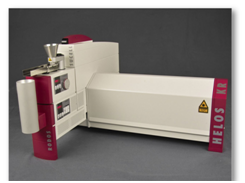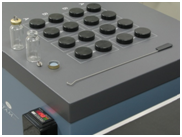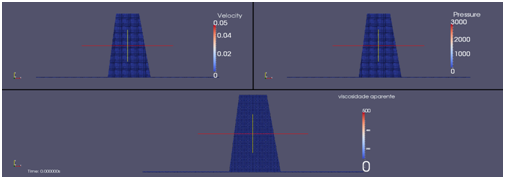Laboratories (Civil Construction)
– LABORATORY OF MICROSTRUCTURE AND ECO-EFFICIENCY OF MATERIALS (LME)
The laboratory has as its premise the congregation of professors and researchers, graduate and undergraduate students with varied backgrounds (civil engineering, materials engineering, chemistry, physics, microbiology, etc.), creating a multidisciplinary environment for the feasibility of research projects That culminate in evolution in the state of scientific and technological knowledge applied to the chain of building materials. Currently LME has a significant and unique structure of laboratory equipment. We highlight some below.
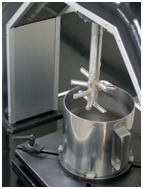 |
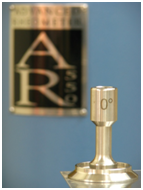 |
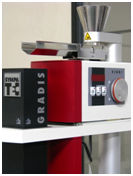 |
| Reômetro de concretos | Reômetro de pasta | Granulômetro (imagem dinâmica) |
|
|
|
|
| Granulômetro a laser | Termobalança TG/DTG | Calorímetro isotérmico |
 |
 |
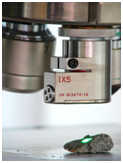 |
| Goniômetro | Microscópio 3 D | Perfilômetro |
– LABORATORY OF CONSTRUCTION MATERIALS, COMPONENTS AND PROCESSES (LMCP)
The LMCP is capable of performing most of the standardized testing of Civil Construction materials and components. In this laboratory can be characterized raw materials such as hydraulic and aerial binders, pastes, aggregates and additives, as well as the mortars and concrete produced with them. The laboratory is qualified for evaluation of mortar intended for fresh and hardened behavior in terms of physical and mechanical properties and behavior over time, such as shrinkage by drying. There is also the possibility of performing performance evaluations of applied coating systems, with or without the simulation of conditions of intense temperature variation, for example. It is also possible to characterize concretes in general and special concretes, such as high strength concrete and concrete with fibers, which are evaluated under the most varied existing test methods for their characterization in the fresh state and in terms of mechanical behavior. It is also possible to perform tests and components such as blocks, prefabricated articles and components for floors, vertical fences and roofs.
This laboratory currently has the necessary equipment and instruments for the development of experimental programs related to the technological development of methods, processes and construction systems, being the most studied the concrete components and coatings and the fences. Its infrastructure allows the realization of several types of tests with materials, components and evaluation of the performance of constructive elements, including with the accomplishment in test bodies of big dimensions like concrete tubes with until 1.5 m of nominal diameter, concrete staves For TBM tunnels, slabs, beams, walls, etc. It is worth mentioning that the gantry available for tests on components and larger elements are able to carry out the tests with closed load control system where the test speed is governed by the displacement imposed on the element. There is total capacity for data acquisition that allows the simultaneous control of loading and deformation at different positions of the specimens, as well as the ability to adjust the loading and support elements in order to provide different test configurations.
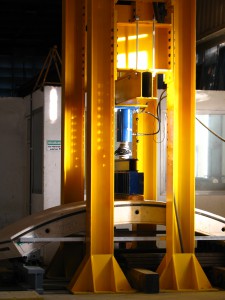 |
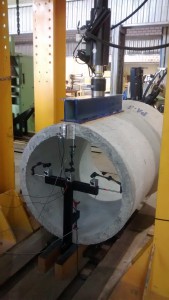 |
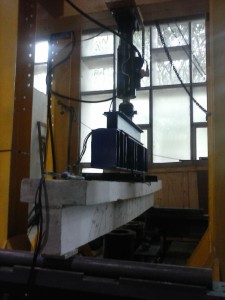 |
– CONSTRUCTED ENVIRONMENT MICROBIOLOGY LABORATORY (LMI)
The main activities are related to the research of microbial action in different materials, involving phenomena of biodeterioration of real estate paints, mortars for coatings, concrete, fiber cement, cold roofs and plaster. Also researches are carried out on precipitation of calcium carbonate by ureolytic bacteria, this phenomenon involves applications of soil bioconsolidation and biocalcification of cementitious materials.
– LABORATÓRIO DE SISTEMAS PREDIAIS (LSP)
This laboratory, which has an area of 400 m², is capable of performing both horizontal tests and vertical tests – a masonry tower with five floors, unique in the country, for this purpose -, providing research on hydraulic systems of supply and Distribution of hot and cold water, sewage, rainwater, electricity, ventilation, air conditioning, fire, fuel gas, transportation, energy conservation in buildings and building automation. It has a modern system of data acquisition and control, distributed throughout the laboratory, managed by microcomputer, network management equipment and controllers, with capacity to read 30 analog variables every minute, and can be expanded to 300 variables. It has a workshop with lathe, cutting machines, welding and a very complete set of tools. Sensors, instrumentation and new data collection modules were acquired, enabling the creation of new research fields.
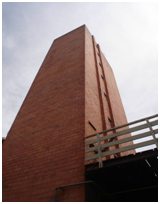 |
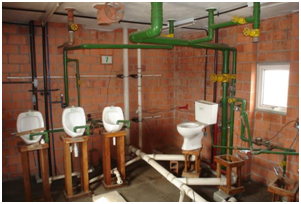 |
| Hydraulic tower | VAA in wastewater system of sanitary sewage |
– PROJECT SUPPORT LABORATORY (LSUP)
The researchers study the application of computational mathematical models in the design of Engineering systems, aiming at optimizing resources, improving performance and increasing reliability. They are also concerned with the applications of graphic technology in the project activity. For this they have several computers compatible with the Windows and MAC-OS environments, a numerical control machine from the Roland Digital Group and a didactic room equipped with graphic stations compatible with the Unix operating system, as well as a 3-D scanner and digitizing tables. It also has a cluster of computers with 12 processors to develop studies CFD (Computer Fluid Dynamics) in areas such as thermal comfort of ventilated environments.




 Imprimir
Imprimir